If you're going to play only one pedometer-meets-augmented reality game, which should it be? Pokemon Go or Wizards Unite?
Niantic and Portkey Games released Wizards Unite last Friday, and if you're in one of the countries that has access to it, you may be debating whether or not you should play it. You may even be wondering if you should leave Pokemon Go in order to battle evil wizards and collect magical artifacts. Well, I'm here to shed some light on the issue, as someone who has played a considerable amount of both, as well as someone who is a self-professed Harry Potter and Pokemon nerd.
A brief overview
Wizards Unite is built on the same framework that Pokemon Go pioneered, meaning that the two games are actually quite a bit more similar than they are different. This means that both games feature a battle system, physical checkpoints (such as inns, greenhouses, gyms, et cetera), and a distance-based reward system (eggs in Pokemon Go, portkeys in Wizards Unite.) Both use some sort of item to do an on-screen objective — for Pokemon, this is Pokeballs, for Wizards Unite, it's energy used to cast spells. The similarities don't end there, either.
This makes the games fairly easy to compare with each other, though a large part of enjoyment a person will derive from the app is whether they're in Camp Pokemon or Camp Harry Potter. Still, I'm going to compare the games, just on the off-chance someone isn't sure which GPS-based, augmented-reality, "basically-just-an-interactive-pedometer" game they want to devote their time to. Also, perhaps selfishly, because I genuinely enjoy pedometer games and would like to see more of them hit the market.
App Design
Pokemon Go came out in 2016, and for the most part, the design of the app has changed very little. Pokemon Go's overall design is fairly intuitive and isn't bogged down with tons of submenus that you'll need to navigate simply to play the game. This makes it an appealing game to almost everyone, regardless of age or technical prowess.
Wizards Unite, however, is somewhat less intuitive, and is a game that has submenus inside of submenus inside of submenus. It's submenus the whole way down. Seriously. This is likely going to alienate a lot of players simply because there's a lot to juggle. Younger players, especially those in younger than 10, may find this game to be overwhelming.
Theming and Feel
Pokemon Go's theming is pretty solid, but that's unsurprising. The concept of a GPS-based Pokemon game makes sense without having to stretch or change the formula too much. In the main series, you're a kid who leaves home, catches Pokemon in the wild, battles in gyms, visits Pokecenters, and most of all, spends a lot of time traversing the outside world.
In Pokemon Go, you have to leave your house, catch Pokemon in the wild, battle in gyms, visit Pokestops, and in order to get any real meaningful rewards, you'll have to traverse the outside world and get in those kilometers.
In order for Wizards Unite to match the theme to the gameplay, they've had to change it up a bit. Instead of creating a character within Hogwarts, you're a wizard who is contracting with the Ministry of Magic, tasked with collecting magical artifacts, potion ingredients, and defeating confoundables.
Confoundables — for those of you not in the know — is a piece of chaotic magic that bound itself to foundables, which are, of course, displaced objects, creatures, wizards, and memories. The displaced foundables are then left, unguarded and out in the open, where they could easily be discovered by muggles — or nonmagical humans.
The game, by the way, does a very good job at explaining this, though it can at times feel a little narrative heavy for something that expects you to walk while playing it.
So, while the theme doesn't feel like a traditional piece of the Harry Potter world, it still makes sense. After all, you only stay in Hogwarts for seven years. Why not explore the post-Hogwarts world?
There is one major reverence to air, and that is currently, you aren't given the ability to customize your character in the same way you are in Pokemon Go. Once you pick your house alignment, you've pretty much done all the customizing you can do, beyond filling out your player profile. Your character is a completely ambiguous, wizard-shaped blob on the map. We're hoping that Wizards Unite chooses to give players the ability to customize their character map model in the future.
Objectives
In Pokemon Go, you're tasked with just a couple of simple objectives. The first, as expected, is to catch at least one of every type of Pokemon, either through catching a Pokemon in the Wild, or hatching an egg by walking a certain amount of kilometers. The second, is to utilize those Pokemon in battle, and this includes to capturing and subsequently defending a gym, fighting in raids to obtain specific Pokemon, or battling friends for randomized rewards.
Wizards Unite has similar, albeit somewhat more complex objectives. In Wizards Unite, players have to defeat confoundables, collect foundables that are then used to fill out sticker books, battle against dark-arts users, unlock portkeys by walking a certain amount of kilometers, brew potions, and potentially a few things I may be overlooking.
While somewhat more complex, if you're familiar with Pokemon Go, Wizards Unite won't be too difficult to master. As stated earlier, Wizards Unite is built on top of the framework that also created Pokemon Go, so there's quite a bit of gameplay overlap.
General gameplay and playability
There is a major drawback to Wizards Unite, and it's this— for a game that is supposed to get you up and walking around to play it, it sure seems to be opposed to walking.
The beauty of Pokemon Go is that it is a somewhat passive game experience. When you play Pokemon Go, you don't need to direct your entire attention to it, whether it is "spinning" a gym or catching a Pokemon. If you've got a Pokemon Go Plus or similar third-party device, you don't even need to have your phone out. In fact, the battle elements of the game are the only part where you'll actually need to stop for. And yet, for all of its passive gameplay, Pokemon Go still feels like a game. At the end of a long walk, it's genuinely rewarding to go through your bags and see what you've caught. It's a reward for getting outside and, well, going.
Wizards Unite, unfortunately, does not feel this way. Because the battle system requires you to perform varying, complex gestures with some accuracy, you have to allot more of your attention to your phone.
If you're walking in a park, this may not be a big deal. However, if you're playing in a busy mall or a bustling city, you could run the risk of running into people, objects, animals, or cyclists — all of which are potentially dangerous.
On top of that, Wizards Unite is extremely narrative-heavy. While this is likely a boon for people who love Harry Potter, it does mean that you're going to have to read a lot of text if you want to be caught up on the story as it unfolds.
The battle of the battle systems
However, the one area where Wizards Unite bests Pokemon Go, and soundly, at that.
In Pokemon Go, you're occasionally tasked with needing to do a battle, either in a gym, raid, or against a friend. For Pokemon Go, regardless of what type of battle you're doing, that means you're going to do a lot of repetitive tapping. Not only is this boring, it doesn't feel authentic to the series at all.
You see, Pokemon is a turn-based game with complex rock-paper-scissors gameplay. The Pokemon Go equivalent is boring and an overall pock-mark on the otherwise solidly designed game.
Wizards Unite, on the other hand, has turned battles into fun mini games. When you enter a battle, you'll face off against a foe who you've got to engage in a series of quicktime event-like responses. Swipe diagonally to defend yourself, swing your wand to whip a powerful blast at an enemy's head, try to catch an enemy off-guard with a complicated bit of maneuvering.
These aren't too dissimilar to the battle system you use when fighting Confoundables, but Portkey Games really took their time with the animations, and the gameplay feels like it has some real risk to it.
Also, it's a lot more fun than standing in a public park, tapping your phone for three minutes while you try in vain to defeat an Alolan Marowak.
The case for and against Augmented Reality
As much as I enjoy these GPS-based augmented reality games, I'm not actually the biggest fan of AR. It wears down your battery very quickly, it slows down your pace when playing, and sometimes it doesn't seem to function quite as well as you'd hope.
That being said, as a straight comparison, Wizards Unite handles AR better than Pokemon Go in almost every sense. Once you identify a foe, the game takes a snapshot of the background, allowing you to move your phone to a better position for casting spells without moving the enemy out of the window. It also seems to integrate in with the environment better in general.
If you're into the AR aspects of Pokemon Go, then there's an excellent chance that you'll really enjoy the AR aspects of Wizards Unite.
On the matter of in-app purchases...
In-app purchases are a divisive issue, given users' purchasing habits, they are a necessary evil. I do, however, think that there are certain things that make a specific app more predatory than others. This is where and when I have a problem with IAP.
In Pokemon Go, IAP is entirely optional. Pokecoins, the games in-game currency, can be purchased from the in-game shop in bundles ranging from $0.99 to $99.00. Pokecoins then can be used to buy any number of things from cosmetics to egg incubators to Pokeballs. Of course, you don't have to buy the Pokecoins, either. Pokecoins are rewards from leaving a Pokemon to defend a gym, meaning if you're particularly active (or lucky,) you can earn 50 Pokecoins a day. Assuming 30 days in a month, you can get 1500 Pokecoins, which is a bit more than you get for spending $10.
In Wizards Unite, the IAP feels a little more predatory. It's not uncommon for the app to toss in the occasional pop-up, reminding you that IAP is an option at any point. On top of that, Wizards Unite features timers in the potion brewing that can be shortened with the addition of gold. The cost of buying gold in Wizards Unite is a little more physical money for a little less gold, though some comparable items cost less gold.
Still, with the amount of items that cost 700 gold — roughly $8.40 before tax — or more is a bit off-putting. Yes, you can still earn gold from completing quests and doing battles, so the option to opt-out is still there.
Both games, however, seem to be extremely predatory toward people who live in rural areas. If you happen to live in a town that only has one or two places to replenish pokeballs or energy, or to complete objectives to obtain coins or gold, you'll immediately have a much slower go at the game than someone who is playing in an area with a larger population.
That is, unless you spend money to help make up that deficit by buying your items instead.
So, which is better?
A large portion of which game you want to play boils down to "which franchise did you grow up liking more," as my social media feeds have been filled with die-hard Potter Heads gushing about Wizards Unite has shown.
If you're really into the augmented reality gimmick, I can't stress enough that Wizards Unite definitely takes the cake here. Pokemon Go's augmented reality is far clunkier and more difficult to use, where as Wizards Unite offers a better experience.
If you're looking for a game that is easier to play while trying to keep active, I'd personally recommend Pokemon Go. Even without the Go Plus, Pokemon Go is a game that you can play without needing to constantly monitor your phone. It definitely lends itself better for playing in cities or crowded areas.
If you're a new player, Pokemon Go is a bit less overwhelming, though Wizards Unite is for most people, as long as they're willing to put in the work.
Overall, both games are good entries into the GPS-based, augmented-reality, "basically-just-an-interactive-pedometer" genre. I'm interested in seeing how Wizards Unite develops, because I'm a big fan of any app that seeks to gamify being active.
 Amber Neely
Amber Neely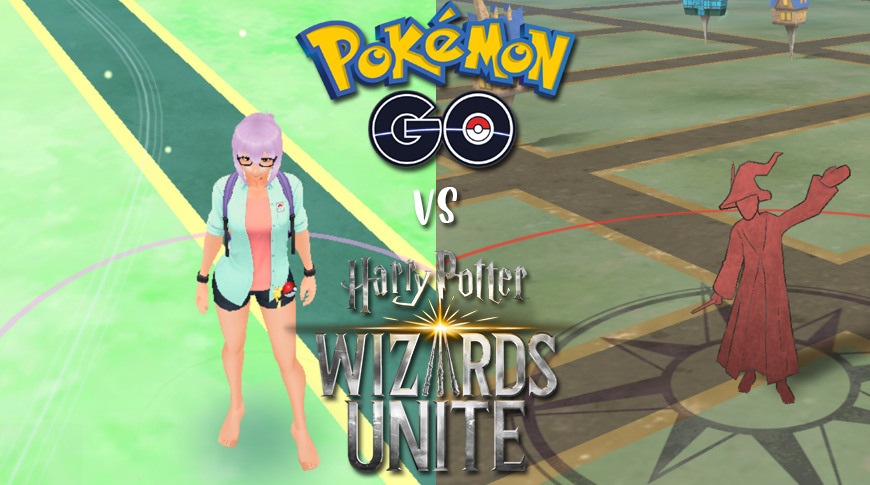

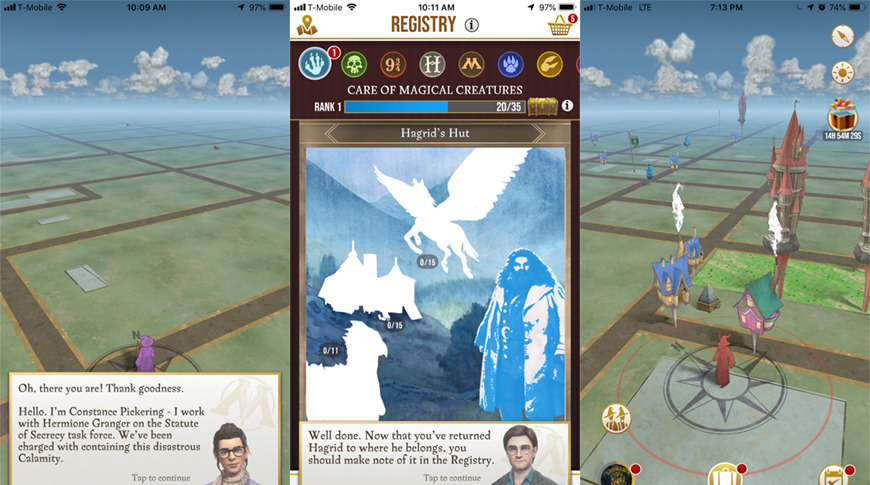
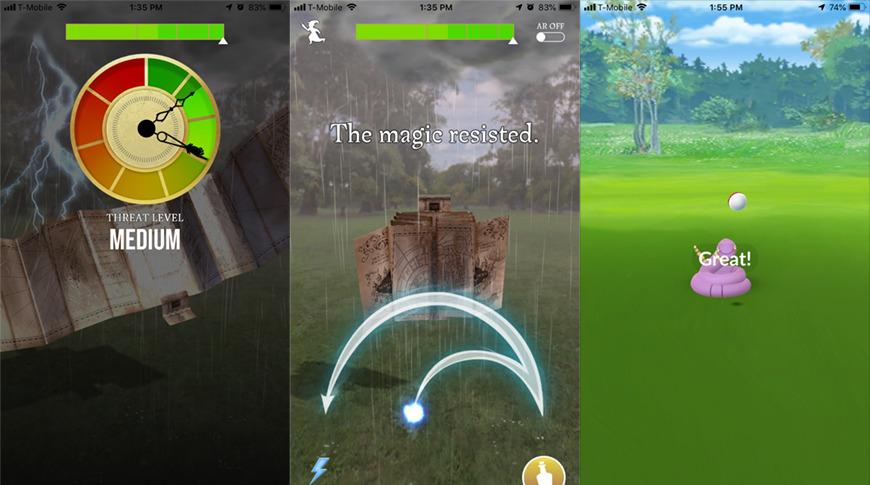
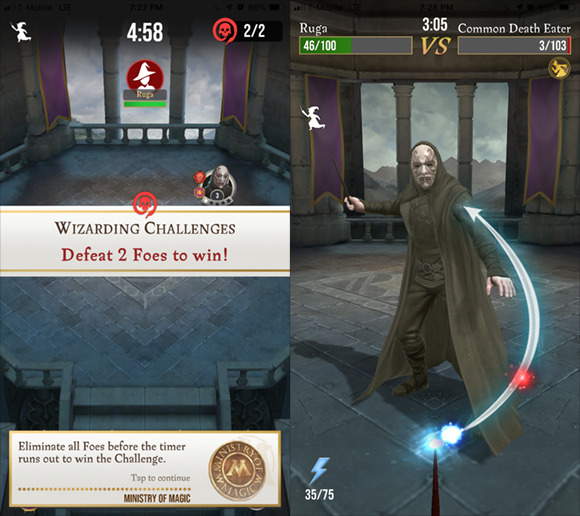
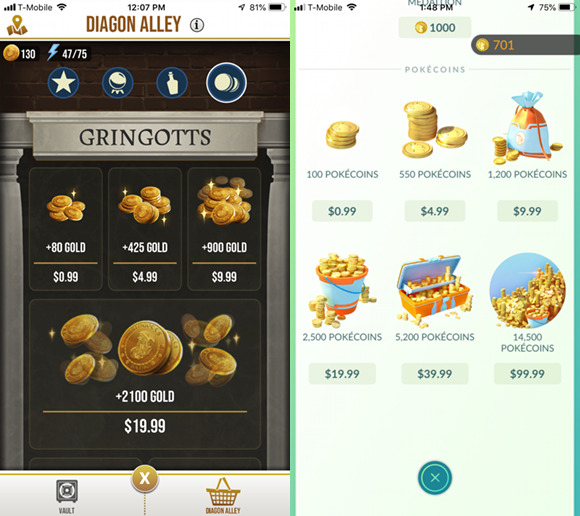







-m.jpg)






 William Gallagher
William Gallagher
 Wesley Hilliard
Wesley Hilliard

 Christine McKee
Christine McKee
 Malcolm Owen
Malcolm Owen

 Andrew Orr
Andrew Orr
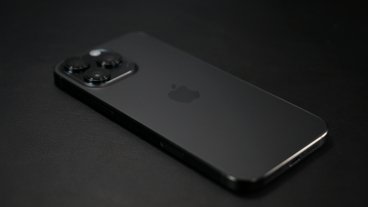




-m.jpg)




2 Comments
Wizards Unite: 0338 9536 2079
One big advantage I see to Wizards Unite is that you don't need to concern yourself with filling your collectable items limit. In Pokemon GO I was constantly throwing away Pokemon (and taking time to determine which ones to throw away) to make space for new ones. Thankfully that aspect is gone with Wizards Unite. Just need to be concerned now with space for your battle items. Also timers for Fortress battles is short as compared with the start of a Raid battle.